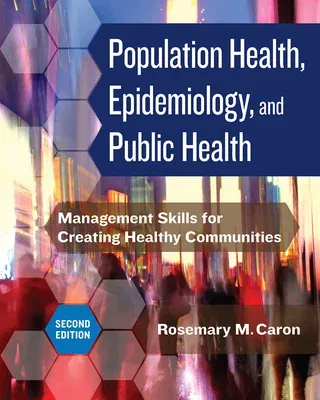COVID-19 triggered broad discussions of population health, epidemiology,
and public health, not only in academic communities but also in society
at large. Although masks, social distancing, and vaccines helped curb
its spread, the novel coronavirus will clearly not be the last
infectious disease that tests our preparedness. Healthcare professionals
must continue to collaborate and implement new strategies to mitigate
future crises. Population Health, Epidemiology, and Public Health:
Management Skills for Creating Healthy Communities presents the
principles and tools that administrators and practitioners need to
monitor, assess, and manage the health of populations in challenging
times. Although public health catastrophes can and will change over
time, the key concepts and evidence-based lessons detailed in this book
are both timeless and essential. Author Rosemary M. Caron uses
real-world case studies and examples to teach unique and innovative
approaches to population health improvement. This significantly updated
edition includes five new chapters on the social determinants of health,
disease prevention strategies, the value of a systems-thinking
methodology, and the application of population health principles during
the COVID-19 pandemic. Other new content in this edition includes:
current public health initiatives, including Healthy People 2030;
discussions on ethical conduct in research; up-to-date epidemiological
case studies on Salmonella, Zika virus, measles, and COVID-19;
approaches to population health, such as community health needs
assessments and Health in All Policies; and exercises that draw on data
sources. Each chapter concludes with discussion prompts and key points
to reinforce readers' understanding of the concepts presented.
Healthcare managers who are armed with the foundational principles
described in this book will help their organizations take greater
strides toward building healthier communities and facing future crises
head-on.

